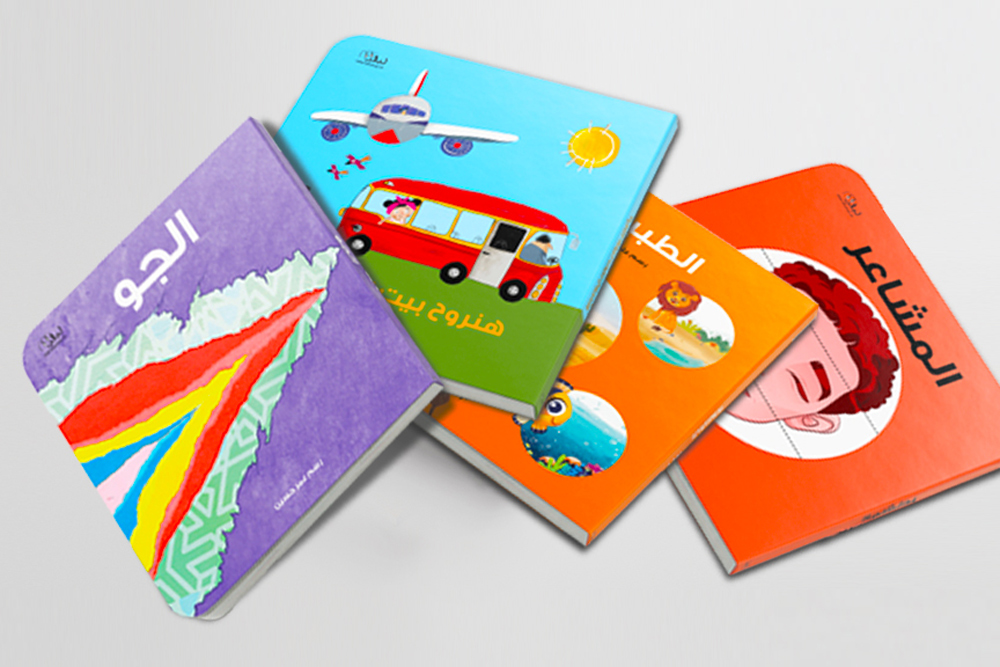For Egyptian families residing in Egypt, the incorporation of Arabic mother tongue and dialect books stands as a pivotal aspect of nurturing language enhancement and preserving cultural heritage. These books offer an array of benefits that play a significant role in enriching the linguistic and cultural experiences of these families, making them an invaluable resource for both children and parents.
Enhancing Understanding and Awareness of the Local
One of the fundamental advantages of Arabic mother tongue and dialect books lies in their ability to enhance understanding and awareness of the local dialect and culture. Through stories and novels in dialect, children can immerse themselves in narratives that resonate with their daily lives, allowing them to broaden their understanding of words, common expressions, and phrases. This exposure contributes to their linguistic and cultural comprehension, fostering a deeper connection to their heritage and community.
Reinforcing Language Proficiency and Identity
Arabic mother tongue and dialect books serve as a means of reinforcing language proficiency and preserving the identity of Egyptian families. By engaging with books and stories in their mother tongue, children have the opportunity to strengthen their Arabic language skills, including reading, writing, and oral communication. This not only bolsters their linguistic abilities but also instils a sense of pride and belonging in their cultural identity. Through the exploration of narratives that reflect their own experiences and traditions, children develop a strong sense of self and a deeper appreciation for their heritage.
Cultivating a Love for Arabic Literature
The availability of Arabic mother tongue books within the household fosters a love for Arabic language and literature from an early age. By surrounding children with stories, poems, and folktales in their native dialect parents can ignite a passion for reading and storytelling, nurturing a lifelong appreciation for Arabic literature. This exposure works enhances children’s imagination, creativity, and critical thinking skills, while also fostering a deeper connection to their cultural roots.
Smooth transition to fus-ha
Learning in dialect provides a foundation that facilitates a smoother and faster transition to learning Fus-ha (Standard Arabic) for children. By initially engaging with Arabic mother tongue books in their local dialect, children develop a strong familiarity with the spoken language, including colloquial expressions and vernacular nuances that are deeply woven into their cultural fabric. This familiarity acts as a bridge, easing the transition to the formal structures and grammar of Fus-ha. The exposure to dialectal literature not only enhances their comprehension and fluency in everyday communication but also lays the groundwork for a more seamless acquisition of Standard Arabic, empowering them to navigate the linguistic landscape with confidence and proficiency.
Preserving Cultural Heritage and Values
Arabic mother tongue books play a crucial role in preserving cultural heritage and values within Egyptian families. These stories often encompass themes and morals that are deeply rooted in Egyptian traditions and customs, serving as a means of passing down cultural knowledge from one generation to the next. By exploring narratives that reflect their cultural background, children gain insight into the rich tapestry of their heritage, instilling a sense of pride, respect, and understanding for their cultural roots.
Building Strong Family Bonds
The shared experience of reading Arabic mother tongue and dialect books creates opportunities for building strong family bonds. Engaging in storytelling sessions and discussions in Arabic literature fosters meaningful connections between family members, allowing for the transmission of cultural values and traditions in a warm and nurturing environment. These shared experiences not only strengthen family ties but also create lasting memories that contribute to a sense of unity and belonging within the family unit.
In Conclusion
Arabic mother tongue and dialect books play a vital role in enriching the lives of Egyptian families, serving as a gateway to language enrichment, cultural preservation, and family bonding. By incorporating these books into the home environment, parents can provide their children with a strong foundation in their native language and heritage, nurturing a deep appreciation for Arabic literature and cultural values from an early age.





